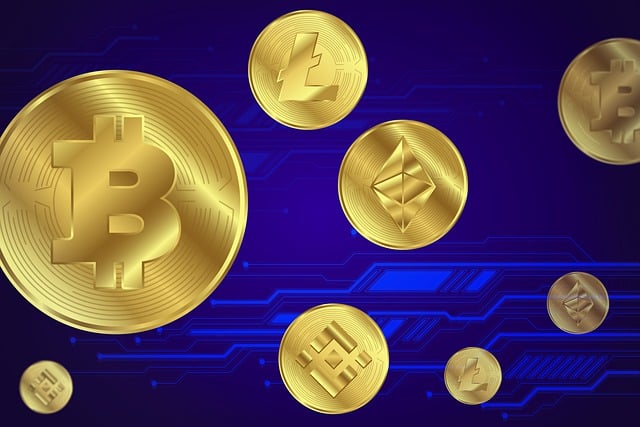Is Binance Earn Halal? A Shariah Guide for Crypto Investors
Author: Jameson Richman Expert
Published On: 2025-10-21
Prepared by Jameson Richman and our team of experts with over a decade of experience in cryptocurrency and digital asset analysis. Learn more about us.
Is Binance Earn halal is a frequent question among Muslim investors exploring cryptocurrency yields. This article explains what Binance Earn offers, summarizes relevant Islamic finance principles (riba, gharar, maysir), evaluates major Binance Earn products against those principles, and gives a practical, step-by-step framework to help Muslims decide whether and how to use these products in a Shariah-compliant way. The answer is not universal—many features on Binance Earn raise legitimate Shariah concerns, while some structures may be acceptable depending on contract details, the underlying asset, and scholarly rulings.

What is Binance Earn?
Binance Earn is a suite of yield-generating products provided by Binance that allows users to earn returns on crypto holdings through mechanisms such as flexible and locked savings, staking (including liquid/DeFi staking), dual investment, structured products (e.g., BNB Vault), and launchpool participation. For an overview of top trading platforms and investor tools that pair with earning products, see this review of trading apps and platforms.
Understanding the exact mechanism of each product is crucial because Islamic rulings depend on contractual details: whether returns are pre-agreed interest-like payments, profit-sharing from a legitimate trade, or rewards for network participation. Before assessing permissibility, one must identify whether returns are derived from riba (interest), gharar (excessive uncertainty), maysir (gambling/speculation), or halal commercial activity.
Core Islamic finance principles relevant to crypto earning
Some key concepts from Islamic jurisprudence that apply when assessing Binance Earn or any crypto yield product:
- Riba (Interest): Prohibited. Any guaranteed return on a loan or lending-like instrument that resembles interest is generally impermissible (see Islamic finance overview).
- Gharar (Excessive Uncertainty): Contracts with highly uncertain outcomes or ambiguous terms may be void or impermissible.
- Maysir (Gambling/Speculation): Earning derived primarily from chance, speculation, or games of chance is forbidden.
- Asset legitimacy: The underlying asset must not be intrinsically haram (alcohol, pork-related businesses, etc.) and should represent real value or serve a genuine economic function.
- Contract clarity and consent: Parties must clearly understand the contract terms and risks, and returns should reflect real economic activity (trade, profit sharing) rather than passive interest.
For background on riba and Islamic finance principles, see the Islamic finance overview and riba pages on Wikipedia for contextual definitions and historical explanations.
How to approach “is binance earn halal” — a practical framework
Before concluding whether any Binance Earn product is halal or haram, apply this checklist:
- Identify the mechanism: Is the product lending your asset for a guaranteed return, pooling for revenue share, or staking as a network participant?
- Examine return structure: Are returns fixed and guaranteed (interest-like), or variable and tied to profit/loss? Fixed guaranteed returns often resemble riba.
- Assess the underlying asset: Is the crypto itself acceptable? If the asset funds haram activities or is used primarily for speculation, that may affect permissibility.
- Check contract clarity and disclosure: Are the terms transparent about how rewards are generated and who bears losses?
- Evaluate risk & uncertainty: High levels of opaque risk (DeFi smart contract risk, rug-pulls) can trigger gharar prohibitions.
- Seek Shariah guidance: Consult qualified scholars or Shariah advisory bodies and consider any existing fatwas on the specific product or platform.

Product-by-product analysis: Binance Earn offerings
Below is a breakdown of common Binance Earn products, typical halal concerns, and an assessment guideline for each.
Flexible Savings (on-demand savings)
Flexible savings typically allow you to deposit crypto and earn a variable APY, withdrawable at any time. The platform may lend deposited assets to margin traders, market makers, or DeFi platforms.
- Primary concern: returns often resemble interest (guaranteed/regular yield) generated by lending your assets—this can constitute riba in many views.
- Gharar: the borrower’s use and risks may be opaque.
- Potentially acceptable if: returns represent genuine profit-sharing from trade activities with clear contracts and risk-sharing; but most flexible savings programs are structured like interest-bearing deposits.
Conclusion: Flexible savings are commonly viewed as problematic from a strict Shariah standpoint because they resemble lending for interest with limited transparency.
Locked Savings (fixed-term deposits)
Locked savings lock assets for a defined period in exchange for a stated APY. The platform lends or invests the assets during the term.
- Primary concern: fixed/guaranteed returns on locked assets typically mimic interest-bearing loans.
- Lock-in clauses can increase gharar if terms about asset use and counterparty risk are unclear.
Conclusion: Locked savings are usually treated like fixed-interest deposits and often considered impermissible unless clearly structured as profit-and-loss sharing.
Staking (on-chain and liquid staking)
Staking involves delegating tokens to a network to secure consensus (Proof-of-Stake). Rewards are paid from the network’s block rewards or transaction fees. Liquid staking tokenizes the staked position (e.g., staked ETH -> stETH) and allows trading.
- Shariah-relevant points:
- If rewards are compensation for active network participation (service provided), many scholars view this as acceptable because it is a return for work or service, not interest.
- If staking is essentially lending tokens to a third party for guaranteed returns, that raises riba concerns.
- Liquid staking can complicate matters: tokenized staked assets may exhibit a hybrid of ownership and debt-like features—this needs contract-level analysis.
- Network risk (slashing) implies real exposure to loss, which can favor permissibility when rewards are proportionate to risk rather than guaranteed interest.
Conclusion: Native staking that rewards validators for network services is more likely to be permissible if the staker bears real risk and the reward is a return on service. Tokenized or custodial staking needs careful scrutiny.
DeFi Staking and Liquidity Mining
DeFi staking/liquidity provision involves supplying tokens to smart contracts to earn trading fees and token rewards.
- Key issues:
- Gharar and smart contract risk (bugs/rug-pulls) are high.
- If rewards are simply incentivization for providing liquidity in a legitimate market, some scholars view it as trade-based profit; however, impermanent loss and speculative token rewards can resemble gambling.
Conclusion: DeFi can be halal if it represents real trade facilitation and participants accept proportional risk, but many DeFi reward programs are speculative and opaque—exercise extreme caution.
Dual Investment / Structured Products
These are derivatives-like products that provide yield depending on price movements, often with strike prices and settlement conditions.
- Major concern: derivatives and speculative payoff structures can fall under maysir (gambling/speculation) and gharar.
- Many scholars consider conventional derivatives impermissible unless structured as genuine hedging contracts with clear commodity-based backing.
Conclusion: Dual investment and structured products often carry significant Shariah risk and are frequently deemed impermissible unless explicitly restructured for Shariah compliance.
BNB Vault and Miscellaneous Vaults
Vaults may combine multiple strategies (staking, liquidity farming) to optimize yield. Their complexity and pooled nature make transparency critical.
- Vaults may mix halal-like staking revenue with impermissible lending revenue—this mixing complicates rulings.
- Clear segregation of revenue sources and pro-rata allocation can help, but rarely offered transparently.
Conclusion: Vaults require detailed disclosures. Without them, many scholars would not endorse their permissibility.
Borrowing/Lending Markets
Binance also offers margin and lending markets. Borrowing and lending at interest is a classic riba violation.
Conclusion: Lending crypto for a guaranteed interest-like return is generally impermissible under mainstream Islamic jurisprudence.
Is Binance Earn halal? Summarized assessment
Short answer: There is no single yes/no. Each Binance Earn product must be assessed individually. In general:
- Products that effectively lend your asset in exchange for a guaranteed return (flexible/locked savings, lending) resemble riba and are likely impermissible to many scholars.
- Staking that rewards participants for genuine network services and where rewards are a function of risk and contribution is more likely to be acceptable.
- DeFi staking and liquidity mining may be halal if they facilitate real trade and participants accept proportional risk, but these are high-risk and often opaque.
- Derivative-like and speculative products (dual investment, structured notes) carry high maysir/gharar concerns and are often impermissible.
Real-world example: assessing a Flexible Savings product
Example: You deposit 1 BTC into Flexible Savings and earn 3% APY. How to judge?
- Mechanism: Binance pools deposits and lends to margin traders or market makers.
- Return nature: 3% is a stated yield—resembles guaranteed interest.
- Risk allocation: You may not bear borrower's default risk fully; Binance may guarantee some returns via insurance funds and internal risk management.
Shariah concerns: Because the yield is guaranteed and the product functions like a conventional interest-bearing deposit, many scholars would classify it as riba. Unless Binance publicly documents that returns are profit shares from trade/investment activities with corresponding risk transfer, permissibility is doubtful.

Case study: Staking ETH vs Flexible ETH savings
Scenario A: You stake ETH directly on an ETH validator or via a decentralized pool and receive variable rewards based on block rewards and slashing risk.
Scenario B: You put ETH into a flexible savings product that pays a fixed 2% APY.
- Scenario A aligns more with service-based reward for network security. Risk of slashing exists. Many scholars could consider this acceptable if documentation shows validators’ role and reward mechanics.
- Scenario B resembles a guaranteed return on deposited asset, closer to riba.
Practical steps for Muslim investors considering Binance Earn
Follow a staged approach rather than a binary decision:
- Educate yourself: Understand exactly how a product generates returns—lending, trading profits, validator rewards, or token emissions.
- Prefer trade/service-based yields: Favor products where returns come from providing a service or proportionate profit-sharing rather than guaranteed interest.
- Demand transparency: Look for contracts, whitepapers, and audited reports showing revenue sources.
- Avoid obvious interest-bearing products: Traditional lending-type savings and margin lending programs are high-risk from a Shariah perspective.
- Segregate funds: If you choose to use non-halal yield products, consider segregating funds and not mixing with zakat calculation funds, or avoid them altogether.
- Consult qualified scholars: Provide your scholar with product documents and ask for a ruling tailored to the contract. Different scholars may reach different conclusions.
- Keep records: Maintain transaction records to support any zakat calculations and possible purification steps if halal-ness is later questioned.
Scholarly positions: what have religious authorities said?
Views on cryptocurrencies and crypto-yield products vary widely. Some scholars accept cryptocurrencies as commodities or currencies if they meet certain conditions; others warn against them due to volatility and lack of intrinsic value. Specific rulings on Binance Earn-like products are limited—many Shariah boards focus on exchange structures or particular Islamic fintech products rather than every commercial offering. Because jurisprudence is contract-specific, broad fatwas tend to evaluate product mechanics rather than brand names.
Actionable tip: Seek fatwas from reputable Islamic finance bodies or Shariah boards that can examine contractual documentation. International standards setters like AAOIFI provide frameworks for Islamic financial products, though they have not standardized all crypto products yet.

Transparency, audits and third-party risk
Transparency matters. Independent smart contract audits, proof of reserves, and published revenue breakdowns increase the ability to classify a product as acceptable under Shariah. For services involving custodial custody or third-party lending, counterparty risk and lack of explicit risk-sharing clauses are major red flags.
Additional resources and further reading
To deepen your understanding of trading platforms, signal services, and automation that interact with yield products, see these resources:
- Top trading apps and platforms for investors in 2024 — a review useful for comparing platform transparency and tools.
- Analysis of crypto signal credibility — helpful when evaluating speculative strategies that might resemble maysir.
- Crypto arbitrage bot strategies — arbitrage can be commercial/trade-driven rather than speculative, but implementation and transparency matter for Shariah evaluation.
- Understanding trading apps and features — platform features affect custody and contract clarity, relevant for halal assessment.
High-authority references
Basic concepts and context can be reviewed at these reputable sources:
- Islamic finance — Wikipedia (overview of principles and prohibited activities)
- Riba — Wikipedia (background on interest prohibition)
- Bitcoin — Wikipedia (context about cryptocurrencies)

Practical examples: how to document for a Shariah advisor
If you plan to consult a scholar, prepare these documents and details to speed their assessment:
- Product whitepaper or terms & conditions.
- Explicit explanation of how returns are generated and whether they are guaranteed.
- Risk disclosures and whether the platform uses customer funds for lending or proprietary trading.
- Details of custody (non-custodial vs custodial), smart contract audits, and proof of reserves.
- Historical performance data with sources and whether rewards are token emissions or fees/profit distributions.
What to do if you've already earned from potentially impermissible products
If you discover that income earned is from a product later determined to be impermissible, common scholarly advice includes:
- Stop using the product immediately.
- Calculate income derived from impermissible sources.
- Purify by donating those earnings to charity without intention of reward (sadaqah), not as zakat distribution to planned beneficiaries, depending on scholarly guidance.
- Seek a qualified scholar for guidance tailored to your situation and local fiqh school.
Final recommendations — a balanced approach
Answering the question “is Binance Earn halal” requires nuance:
- If a Binance Earn product functions like a guaranteed-interest deposit or a derivative/speculative instrument, many scholars would view it as impermissible.
- If a product’s returns come from active economic activity (validator rewards, profit-sharing tied to real trade) and risk is genuinely shared, it may be acceptable—subject to contract clarity and scholarly approval.
- Given current market complexity and differing opinions, prudent Muslim investors should favor transparent, service-based yield mechanisms, avoid clear interest-bearing loans, consult qualified Shariah advisors, and keep careful records.

Summary
The question is binance earn halal has no single universal answer. Many Binance Earn offerings (especially savings and lending-like products) closely resemble interest-bearing instruments and therefore raise strong Shariah objections. Staking and service-based rewards may be more acceptable if contracts show risk-sharing and legitimate economic activity. Because rulings depend on contractual specifics and product architecture, always examine the product mechanism, seek transparent disclosures, and consult knowledgeable Shariah scholars before participating.
Further reading on trading platforms, signal services, and automation that often interface with earning products can be helpful: review the articles linked above to better evaluate platform transparency and product mechanics before deciding.
Note: This article is informational and not a replacement for qualified religious or legal advice. For a custom ruling, present product documents to a recognized Shariah advisor.